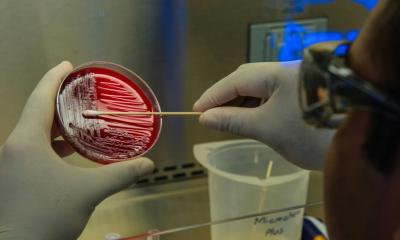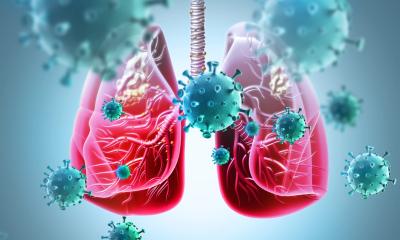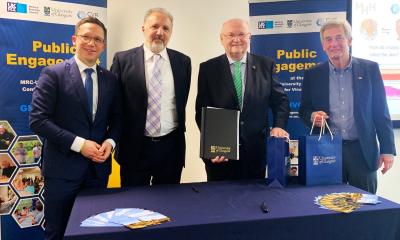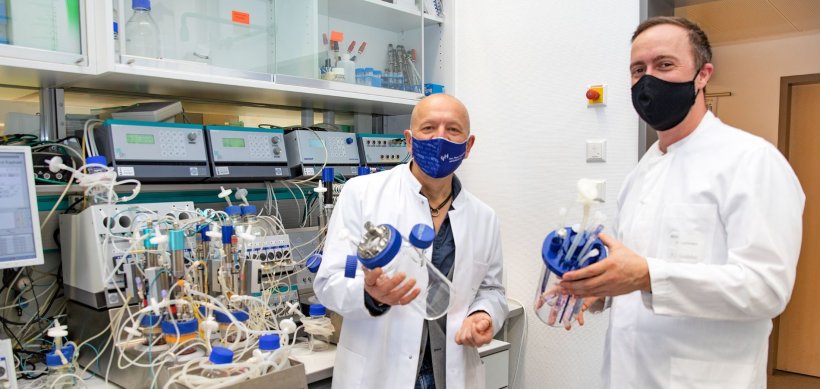
© Karin Kaiser/MHH
News • Research collaboration
'Cells of the future' might cure lung infections
Healing the body with cells – this is the ambitious goal of scientists at Hannover Medical School (MHH).
With this in mind, Professor Dr. Nico Lachmann and Dr. Robert Zweigerdt have initiated a research collaboration and license agreement with the pharmaceutical company Novo Nordisk A/S, to combine academic knowhow with the translational power of the industry. The overall aim of the endeavor is to use special stem cells for developing advanced therapies to regenerate failing organs and cure diseases, for which no adequate treatment is currently available. The collaboration agreement was supported by the technology transfer agency Ascenion.
The project relies on so-called induced pluripotent stem cells (iPS cells), which can be obtained from patients’ somatic cells by a technology known as “somatic cell reprogramming”. The special feature of the resulting iPS cells is their ability to give rise to any functional cell type of the human body. Thus, iPS cells can be used to generate specific replacement cells in a dish, which subsequently can be returned to a patient as a cure.
Recommended article
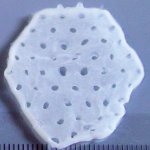
News • Repairing heart muscle with stem cells
Trial run for tissue engineered 'heart patch'
For the first time, engineered heart muscle (EHM) from human induced pluripotent stem cells (iPSCs) will be used to treat patients with heart failure. After regulatory approval, recruitment of the first patient for the first-in-class, first-in-patient BioVAT-HF early clinical trial has started in Göttingen, Germany.
MHH scientists have recently enabled continuous production of iPS cell-derived functional blood cells, including macrophages (phagocytes), by using special bioreactors. "Within the framework of the new research collaboration, we are now specifically developing this technique further, to enable a potential use of these macrophages therapeutically and eventually aiming for the first application in a clinical study. So far, there has been no clinical application of iPS cell progenies in Germany," explains Professor Lachmann.
In pre-clinical proof-of-concept experiments, MHH researchers have readily shown that the iPS cells-macrophages have a prominent therapeutic potential to eliminate disease-causing bacteria. Therefore, they have the great potential, for example, for treating patients with severe bacterial infection of the lungs (pneumonia), which do not respond to antibiotics. "The concept of therapeutic application of iPS cell-derived progenies is already about 15 years old. I am very pleased that we can now advance this idea towards real therapies," says Dr. Zweigerdt.
Source: Hannover Medical School (MHH)
17.02.2021



